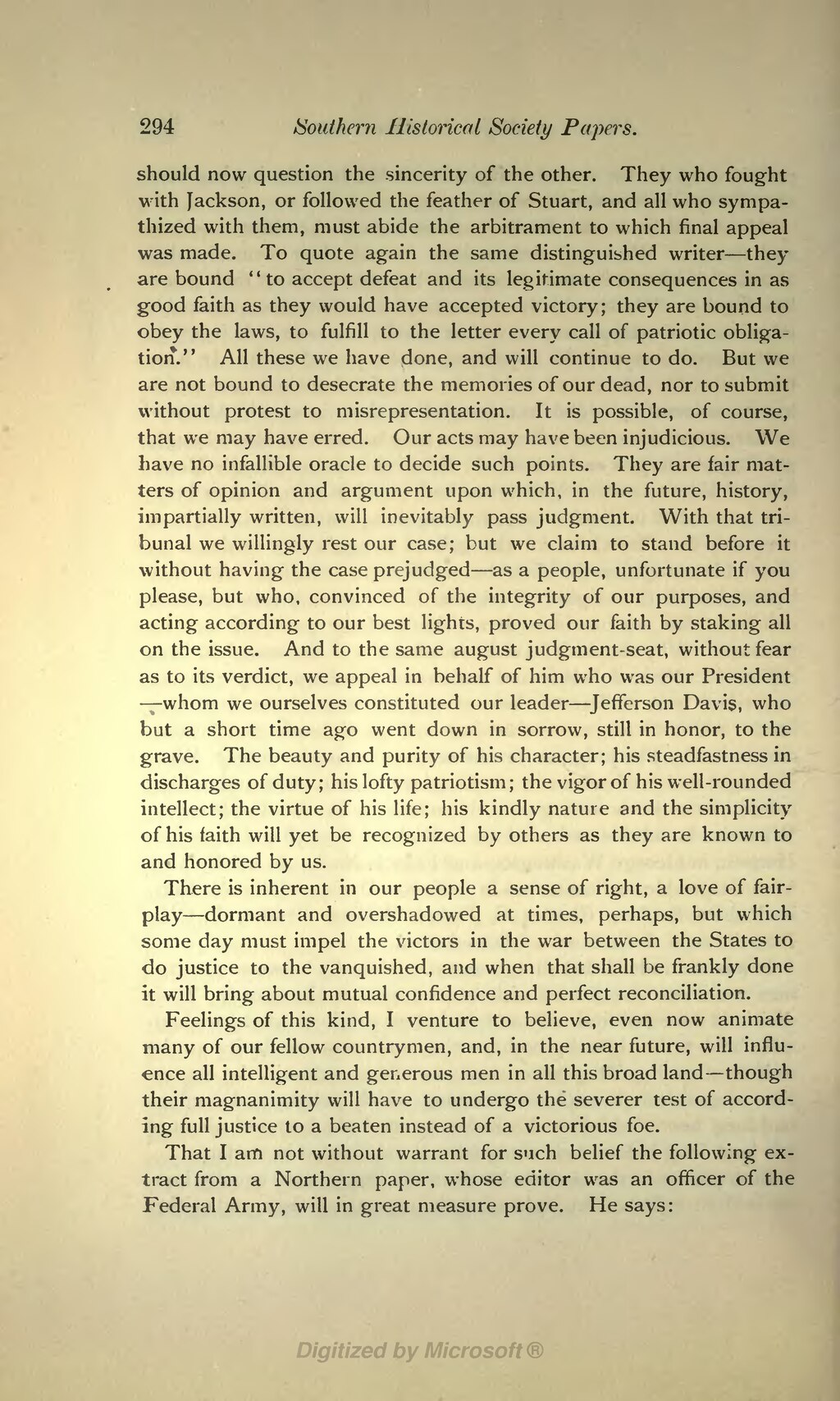294 Southern Historical Society Papers.
should now question the sincerity of the other. They who fought with Jackson, or followed the feather of Stuart, and all who sympa- thized with them, must abide the arbitrament to which final appeal was made. To quote again the same distinguished writer they are bound "to accept defeat and its legitimate consequences in as good faith as they would have accepted victory; they are bound to obey the laws, to fulfill to the letter every call of patriotic obliga- tion." All these we have done, and will continue to do. But we are not bound to desecrate the memories of our dead, nor to submit without protest to misrepresentation. It is possible, of course, that we may have erred. Our acts may have been injudicious. We have no infallible oracle to decide such points. They are fair mat- ters of opinion and argument upon which, in the future, history, impartially written, will inevitably pass judgment. With that tri- bunal we willingly rest our case; but we claim to stand before it without having the case prejudged as a people, unfortunate if you please, but who, convinced of the integrity of our purposes, and acting according to our best lights, proved our faith by staking all on the issue. And to the same august judgment-seat, without fear as to its verdict, we appeal in behalf of him who was our President whom we ourselves constituted our leader Jefferson Davis, who but a short time ago went down in sorrow, still in honor, to the grave. The beauty and purity of his character; his steadfastness in discharges of duty; his lofty patriotism; the vigor of his well-rounded intellect; the virtue of his life; his kindly nature and the simplicity of his faith will yet be recognized by others as they are known to and honored by us.
There is inherent in our people a sense of right, a love of fair- play dormant and overshadowed at times, perhaps, but which some day must impel the victors in the war between the States to do justice to the vanquished, and when that shall be frankly done it will bring about mutual confidence and perfect reconciliation.
Feelings of this kind, I venture to believe, even now animate many of our fellow countrymen, and, in the near future, will influ- ence all intelligent and generous men in all this broad land though their magnanimity will have to undergo the severer test of accord- ing full justice to a beaten instead of a victorious foe.
That I am not without warrant for such belief the following ex- tract from a Northern paper, whose editor was an officer of the Federal Army, will in great measure prove. He says:
